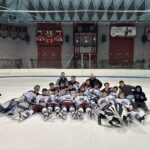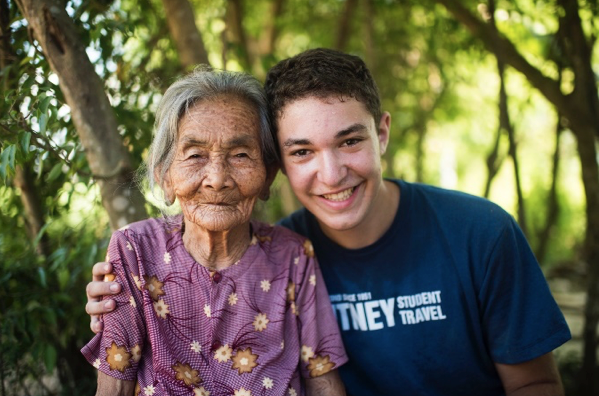When I receive guidance from elders, it is usually wise and insightful. Imagine my surprise when my family friend, a Vietnam War veteran, said to me, “If you see a North Vietnamese man with his eye poked out, do me a favor and slit his throat.”
These words stayed with me as I landed in Saigon for my month-long community service trip to rural Vietnam. On one hand, President Obama’s productive trip to Vietnam in May portrayed a Pro-Western Hanoi government which was friendly to Americans. On the other hand, learning about Vietnam War tragedies like the aftermath of Agent Orange and the My Lai Massacre left me inclined to believe that my group of 19 young Americans would encounter hostility.
I leaned towards the latter. Having just completed U.S. History in my junior year of high school, I was appalled by the atrocities of the war committed by both sides. I expected that a lingering, mutual hatred existed between the Americans and Vietnamese.
My family friend’s resentment stemmed from an incident that occurred during the Vietnam War. False information derived from the torture of the previously mentioned North Vietnamese man led my family friend and his platoon into an ambush, during which many of his comrades perished. Clearly, my family friend had not forgotten the war, nor had he forgiven its assailants. He confirmed my suspicions.
I could not have been more wrong.
At my work site where I would help build houses in Duc Lan, a town in the district of Mo Duc in the province of Quang Ngai, I discovered Vietnam’s heart and soul. Ba Sáu, as she is called, is a 100-year-old great great grandma who taught me the virtue of forgiveness.
Every day, when the sun reached its zenith and the temperature grew overwhelmingly hot, Ba Sáu graciously invited my four friends and me into her home, always offering food, water, and a place to sleep. She invited us via hand gestures because she only spoke Vietnamese, and her welcoming aura made the offers irresistible.
My interest in her centennial life would evolve from fleeting curiosity to genuine inquisitiveness over my weeks in the village. Thankfully, I was able to interview the woman born in 1916 at the end of my trip.
Speaking through a translator, I asked her questions about her life. Ba Sáu never went to school, married at 17, and did farm work her whole life.
When I asked her how much she knew about the world outside her village, she simply responded, “None.” Nothing was entirely unexpected— until she started talking about the war.
“A lot of people died here and a lot of people were injured,” she said. “I’m privileged and lucky now because I can just rest.”
Ba Sáu was a cook for the Viet Cong and a mother who raised four sons and three daughters alone during the war because her husband had previously died of illness.
“Life was very difficult,” she said. “There was a lot of fighting in the mountains and no food available whatsoever. We were just trying to help everyone because it was really a rough time.”
One of her sons was shot and killed by an American soldier when he was only 19. She said her son died in 1972 or 1973, which means he likely perished in the Battle of Mo Duc where Medal of Honor recipient Bill Collier made his famous Alamo-like stand.
The implications were surreal. Why didn’t she want to slit my throat? How could she possibly be so welcoming to the very people who killed her son? I asked her.
“There is no room for hate. Why hate?” Ba Sáu said.
Her words resonated with my translator and me immediately. The juxtaposition of her feelings against those of my family friend amplified my awe for her resilience. Perhaps the reason she has lived so long is her ability to look to the future instead of dwelling on the past.
I wondered if her ability to exonerate Americans was characteristic of the Vietnamese generation affected by the war. Earlier in the trip, a 63-year-old former Viet Cong soldier named Chu Thanh expressed a similar sentiment to me. He said he had forgiven America for everything besides the My Lai massacre because the two peoples were only fighting over “different ideas of what freedom was.”
These two individuals epitomize what every human should strive for; that is, the capacity to show compassion in the face of adversity, rather than perpetuate generational animosity.
Ba Sáu and Chu Thanh have taught me that to forgive is not to forget; to forgive is to ensure that we fought for peace and not for war; to forgive is to remind us that love is our ultimate destination on the winding path of conflict; to forgive is to affirm that humankind holds a powerful propensity to overcome and supersede tragedy; to forgive is to remember, painfully, and openly, that the human spirit will always defeat those who wish to suppress it.







